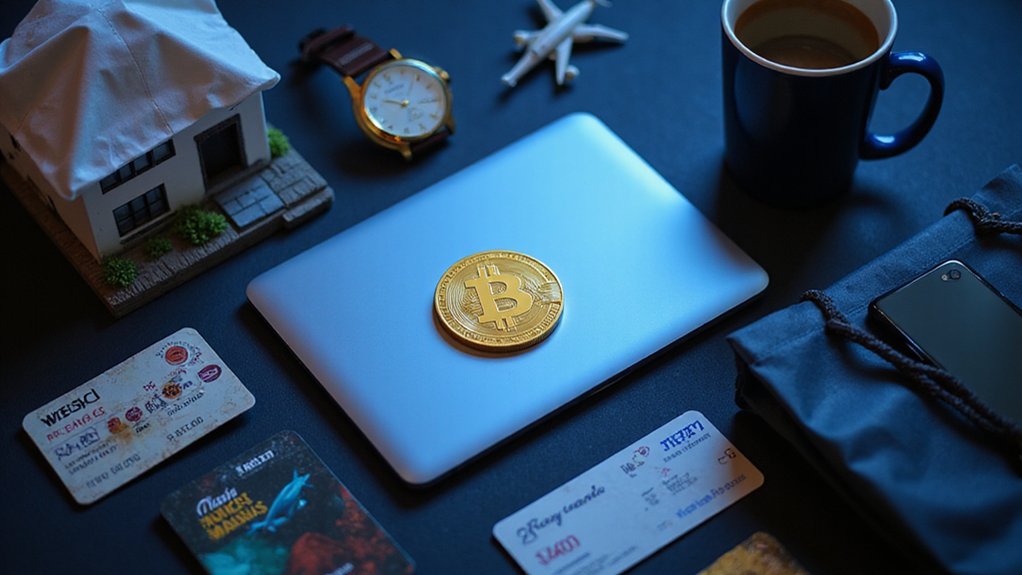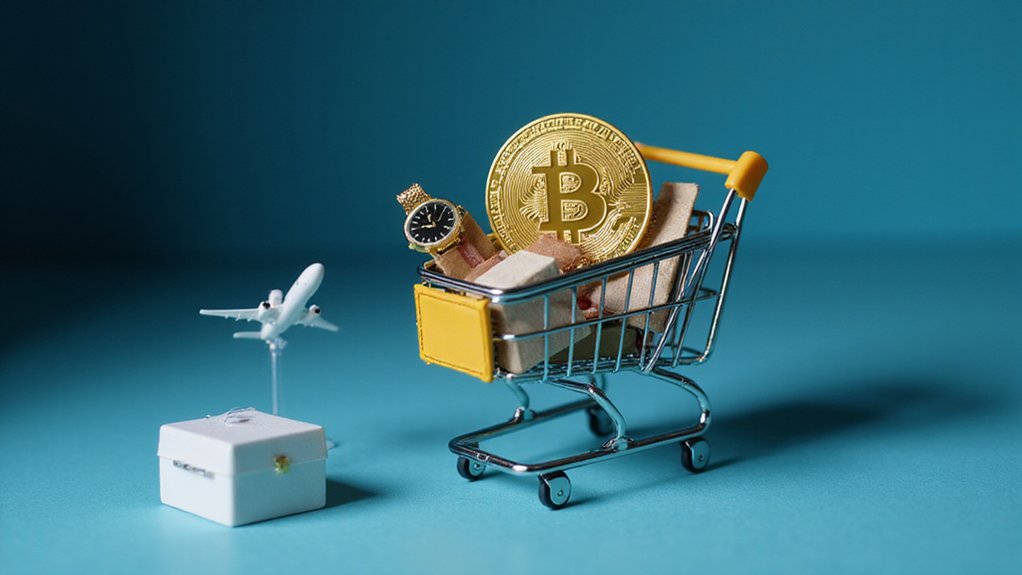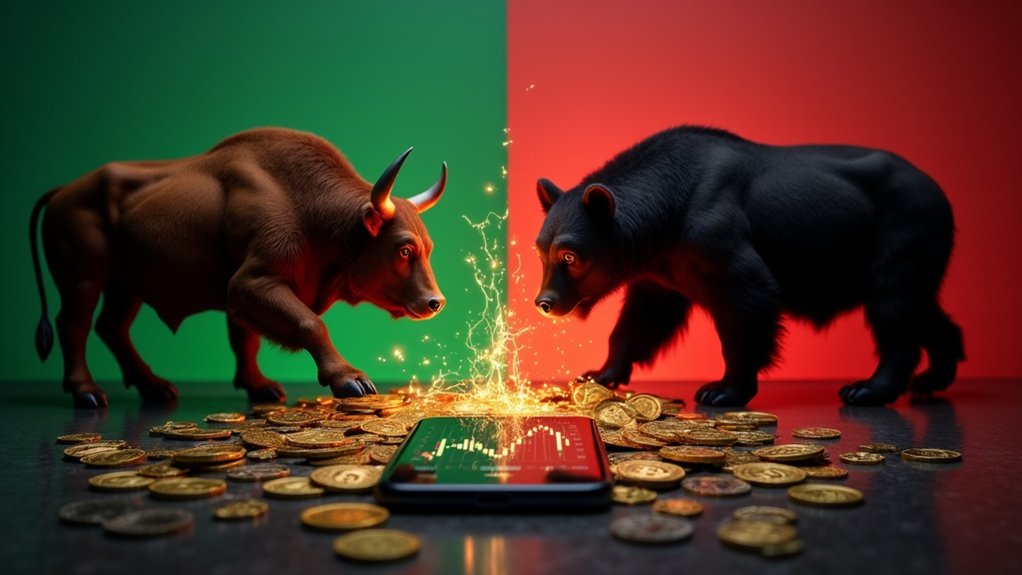Bitcoin’s purchasing power now extends across remarkably diverse sectors—from digital marketplace offerings (e-books, software, VPNs, domains) to educational platforms and travel bookings (flights, hotels, vacation packages). The cryptocurrency has infiltrated culinary experiences, with upscale restaurants and delivery services embracing digital transactions alongside traditional payment methods. Perhaps most surprisingly, luxury acquisitions—real estate, fine art, high-end vehicles, and premium timepieces—have joined the Bitcoin ecosystem. This payment revolution continues to upend conventional commerce, transforming digital assets into tangible experiences and possessions.

Where once Bitcoin existed purely as an enigmatic digital curiosity, its metamorphosis into a legitimate tender has dramatically expanded the spectrum of goods and services available to cryptocurrency enthusiasts.
The digital marketplace has perhaps most readily embraced this blockchain-based currency, with everything from e-books and software to VPN subscriptions and domain names now available for purchase through Bitcoin transactions. This aligns with market trends showing Bitcoin remains dominant among cryptocurrency owners and potential buyers in 2025.
Educational platforms have likewise joined the fray, offering courses to those willing to part with their digital assets in exchange for knowledge.
The travel industry—traditionally a bastion of conservative financial practices—has somewhat surprisingly emerged as an adopter of cryptocurrency payments.
Discerning travelers can now book flights, secure hotel accommodations, and even arrange complete vacation packages using Bitcoin.
Expedia, among other platforms, has integrated this payment option, suggesting a certain mainstreaming of what was once considered fringe financial technology.
Culinary experiences, too, have become accessible to Bitcoin holders.
From upscale restaurants catering to tech-savvy clientele to more humble coffee shops and food delivery services, the gastronomic world has begun to acknowledge cryptocurrency’s legitimacy (though one might question whether paying for fast food with an asset subject to dramatic value fluctuations represents sound financial planning).
The luxury sector presents particularly interesting opportunities for Bitcoin expenditure.
Real estate, fine art, luxury vehicles, and high-end timepieces—traditional repositories of wealth—can now be acquired through cryptocurrency. With a market cap exceeding $1.7 trillion, Bitcoin has gained credibility among high-value asset sellers and luxury merchants worldwide.
Electronics retailers like Overstock and Newegg have similarly embraced Bitcoin payments, allowing for the purchase of smartphones, computers, and gaming consoles.
Major online retailers and even some traditional department stores now accept Bitcoin for purchases ranging from fashion items to home goods.
Perhaps most practically, various platforms enable the conversion of Bitcoin into gift cards, effectively bridging the gap between cryptocurrency and conventional retail experiences.
This expanding ecosystem of Bitcoin-accepting merchants represents a significant evolution in how we conceptualize and utilize digital currency in everyday transactions.
Frequently Asked Questions
How Do I Store Bitcoins Safely?
To store Bitcoin safely, one should employ hardware wallets like Ledger Nano X or Trezor Safe 3—physical devices that keep private keys offline, away from potential hackers.
For enhanced security, implement two-factor authentication, carefully safeguard seed phrases (storing them in physically secure locations, never digitally), and regularly update firmware.
The prudent investor might consider air-gapped systems for the highest level of protection.
Cold storage options, while less convenient than hot wallets, offer substantially superior security against cyber threats.
What Happens if I Lose My Bitcoin Wallet Password?
Losing a Bitcoin wallet password is, quite simply, a potential financial calamity.
Unlike traditional banking’s safety nets, cryptocurrency’s decentralized nature offers no password reset button. The funds remain mathematically accessible yet practically unreachable—a modern-day locked treasure chest without its key.
Recovery options include specialized software like btcrecover.py for partial password recollection, professional services for complex situations, or—should luck prevail—discovering that backup you prudently created but subsequently forgot about.
Are Bitcoin Transactions Traceable?
Bitcoin transactions, contrary to popular misconceptions, are indeed traceable—quite meticulously so.
The blockchain’s immutable ledger guarantees every transaction remains permanently visible, allowing anyone with rudimentary technical skills to follow the money trail.
While users operate behind pseudonymous wallet addresses (rather than names), sophisticated blockchain analytics tools can cluster related addresses and identify patterns.
True anonymity requires additional obfuscation techniques like mixers or tumblers, though even these leave forensic breadcrumbs for determined investigators with the right resources.
How Volatile Is Bitcoin Compared to Traditional Currencies?
Bitcoin exhibits substantially higher volatility than traditional currencies, with price fluctuations that would make even seasoned forex traders blanch.
While major fiat currencies typically experience daily movements of less than 1%, Bitcoin has historically demonstrated swings exceeding 10% within 24-hour periods.
This volatility stems from its relatively nascent market, regulatory uncertainty, and susceptibility to sentiment shifts—creating both hair-raising risks and tantalizing opportunities that traditional currency markets simply don’t offer.
Such volatility remains Bitcoin’s double-edged sword.
What Tax Implications Do Bitcoin Purchases Have?
Bitcoin purchases trigger taxable events, as the IRS classifies these digital assets as property rather than currency.
Each transaction—whether buying goods or services—constitutes a disposition requiring capital gains calculation (purchase price versus acquisition cost).
The holding period determines taxation rates: short-term gains (under one year) face ordinary income rates up to 37%, while long-term holdings enjoy preferential treatment at 0-20%.
Record-keeping becomes paramount, with the wallet-by-wallet accounting method now mandated for establishing accurate cost basis.









